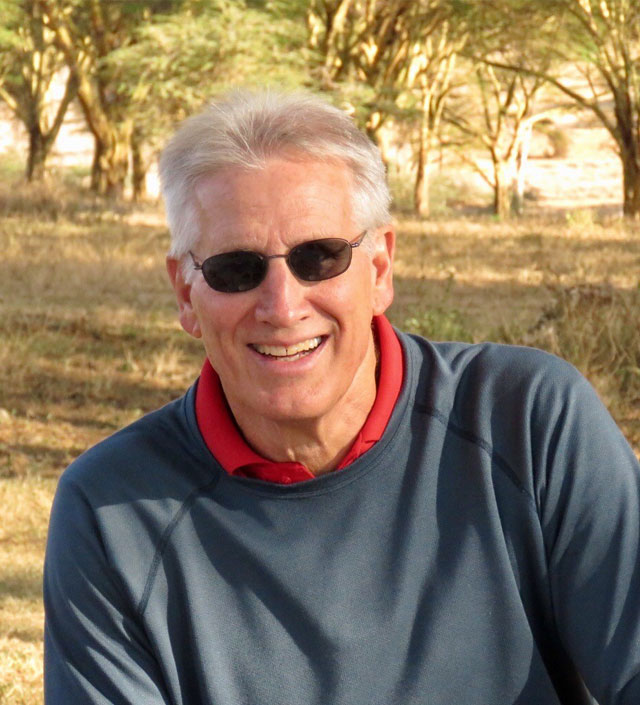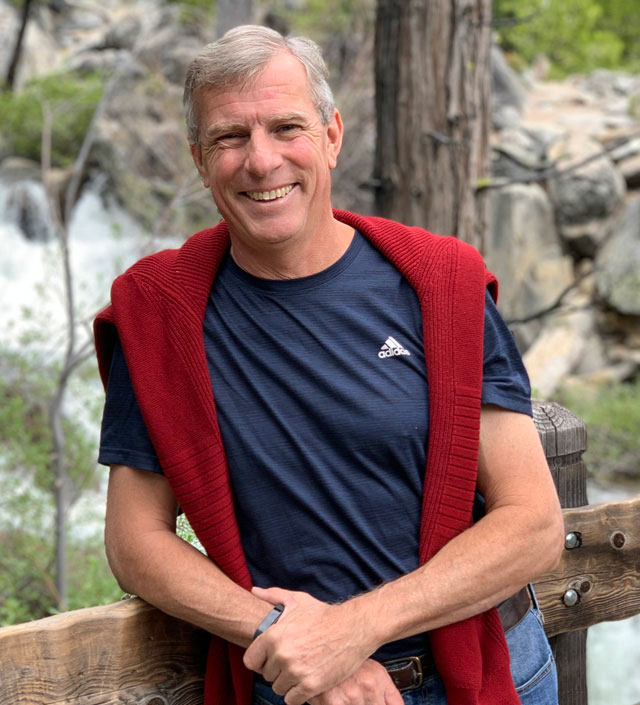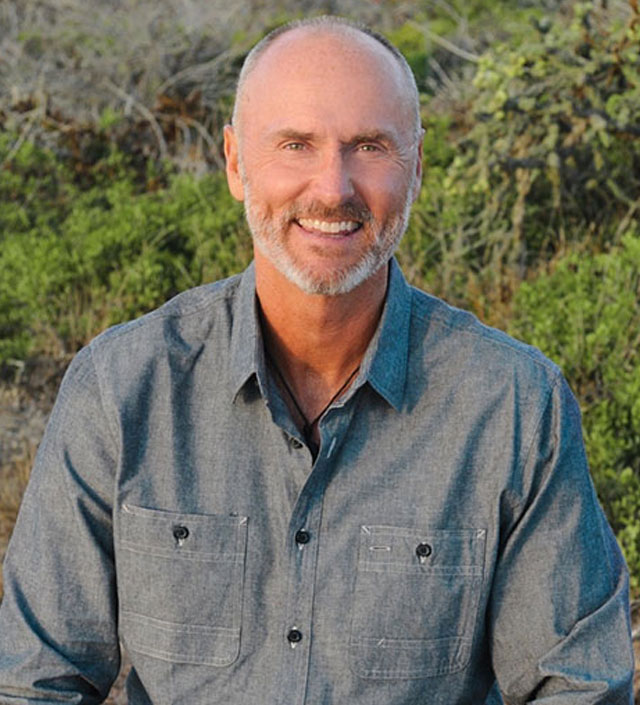Editor’s Note: This article is the third in a series of columns by financial advisor Bradley Jenson on “Thought Leaders in Longevity.”
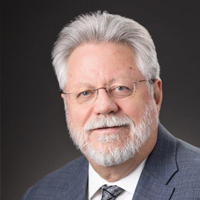
Peter Linneman, PhD, is a professor emeritus of The Wharton School, University of Pennsylvania, where he was the founding chair of Wharton’s real estate department. He is also the principal and founder of Linneman Associates, American Land Fund and KL Realty. He is the lead author of “Real Estate Finance & Investments: Risks and Opportunities” and coauthor of “The Great Age Reboot: Cracking the Longevity Code for a Younger Tomorrow,” which is being published September 13, 2022.
I recently read an advance copy of “The Great Age Reboot” and interviewed Dr. Linneman.
Bradley Jenson: Tell us the story of “The Great Age Reboot.” How did you come to collaborate with your co-authors Michael Roizen and Albert Ratner?
Dr. Peter Linneman: Albert Ratner is a longtime, very dear friend and was on Cleveland Clinic’s board for many years and very active in a lot of things, including what happens with Social Security at a policy level. He has been a very close friend of mine for many years and knows Mike Roizen very well. Mike became one of the key longevity researchers years ago. Mike was telling Albert that there are all of these coming breakthroughs in science and that people have no idea how much it’s going to change the world — exponentially, not just linearly. They discussed how this would affect the economy and Albert said, “Peter, we need you to help us write a book on longevity.” The book, originally scheduled to come out during May 2020, was delayed by Covid, so we kept updating it for new science.
Jenson: You write that longevity is not only the next disrupter but the greatest disrupter ever. Please share more about that.
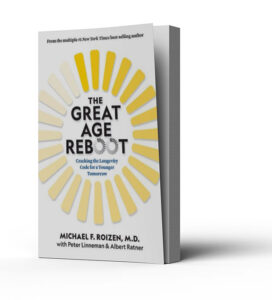
Linneman: So, think about computers. That’s a disruptor in a good sense. Increased longevity will not be a disrupter in a bad sense but it will disrupt the way life is carried out. For another example, think of the internal combustion engine. Or think of electricity. Those are the things that allowed us as humans to get more out of ourselves. But longevity gives us an even bigger opportunity to get more out of ourselves and, as such, is likely to be the greatest disrupter ever. Again, we mean a positive disruption in the way life goes normally.
Jenson: What, exactly, is the great age reboot and what are the most important things financial advisors must understand about it?
Linneman: I want to give you a very simple version. When Albert Ratner was born, life expectancy for a male was something like 56 years. He’s now 94! I’m 71. When I was born I think my life expectancy was 63 years and not only am I alive at 71 but something like 75% of my age cohort is alive. That was because we got rid of cholera — caused by water-born pathogens — through sanitation; then we got penicillin, etc. And those all added to life expectancy. And then we came to understand the human genome, which let’s us change the trajectory of longevity at a much faster pace than we’ve ever done before. Before now, extending longevity was about adding months to your life expectancy every year. The great age reboot is about adding decades of healthy living. It’s an exponential difference.
My very dear friend Lucille Ford is 100. She’s still living, but frail. By contrast, I’m going to live some of my later years like a 20- to 30-year-old and some as 40- to 50-year-old. And the last year or two of my life may still be very difficult.
We use the analogy of a tire. When I was young, an automobile tire might last 6,000 miles and now it can go 80,000 to 100,000 miles. But it’s not running bald from 6,000 miles to 80,000 miles. It will eventually get bald but it’s got good tread. That’s us.
My favorite example is this: We humans have white fat, like bacon. And white fat burns very slowly and it’s probably related to human evolution. Prehistorically, we needed to keep our white fat because we didn’t know when we’d get our next meal. But baby fat is basically brown fat. It looks brown. And it burns relatively fast in comparison to white fat. In today’s world, we do know when we’ll have our next meal.
Imagine we can change white fat to brown fat so that it burns faster. What would happen is that a lot of the health problems that go with excess fat would be gone. Scientists have done this with multiple species. Now, is this technology ready for humans? No. But, wow! If this can be done, I can eat custard pie and have no adverse effects. This is another reason why longevity is the most disruptive of all: “I can have my cake, or custard pie, and eat it too”!
Jenson: As an advisor, what does the great age reboot mean for my client base?
Linneman: For most people, their life expectancies are still going up and will really go up from here. They are going to live much longer and they are going to live healthier for longer, and that means they are going to have to save and invest for longer. It also means that not only are they going to have to work longer, they are going to want to work longer because they are energized and active.
Additional Reading: How Long Can You Live? Perhaps Longer Than You Think
There are three distinct parts to the great age reboot, and the book. First, there is this amazing science happening and it is going to let you live your life a lot longer and healthier than you ever dreamed possible. And your clients are going to have to think, today, about this longer and healthier life as it relates to their future. For example, if someone starts their work life at age 25 and retires at 65, that’s a 40-year work life. If instead, they retire at 69, that’s four more years and that represents a 10% increase in their lifetime productive output. And, qualitatively, it’s more than 10% because it’s their most productive years. People are generally more experienced, more knowledgeable, and more productive later in life.
The second part is the finances. .If the expected scientific advances are true, your clients are going to need to save and invest more. And this is what you advisors are in the business of. Society has to deal with it as well. The third part is that people need to take care of themselves in terms of having a healthy lifestyle to complement the scientific advances that are on their way toward us.
Jenson: How far should advisors project life expectancies in their financial planning software? How about 100 for men and 103 for women? Do you like these numbers or would you push them higher?
Linneman: If I were doing a plan for someone in their 40s or 50s, I’d push them higher: to 110 or 120. If they are my age, 71, I’d absolutely run numbers to 100 or 105. Of course, for clients who have a severe heart problem or cancer, then obviously that’s different. But for healthy people, I run scenarios out that far. If they are 90 and they are healthy, I’d easily run the numbers out to 105.
There is a lack of imagination about how fast things can happen. This is true with science and technology and it’s also true on the fiscal front. We spend 18% of a $22 trillion dollar GDP on healthcare; 80% of that number is spent on chronic diseases. That’s a lot of money. Imagine we could cut that 80% in half with reboots. Then we’d have 7% of GDP available for other stuff. It’s staggering what benefit this will bring. We need to prepare for the age reboot both on an individual level and on a societal level.
Jenson: When people hear about increased longevity they often say it will be a great burden on the economy, that it will lead to a much higher cost of aging to have so many older people living even longer. You counter that negative response by claiming that increased longevity will be beneficial to the economy. Why?
Linneman: When people say, “We can’t afford it; we can’t afford to have people live to be 100,” I like to say, “OK, are we going to start with you? We can’t afford you to live to 100? Or, if they are young, how about if we start with your grandfather or your dad? And, of course, no one would want that because they understand intuitively that they are healthy and productive people in different ways. They may be economically productive. They are certainly socially productive and so forth. That’s the first thing.
Second, I was a student of Gary Becker, who won the Nobel Prize for writing the book “Human Capital.” Gary was saying that our continued learning and enhancement of innovation is the ultimate capital, not a machine. A machine comes from our ingenuity to create a machine. Clearly, creating more human capital due to increased longevity has to be productive for society.
Consider this example: What if Warren Buffett had died at age 65 so he wouldn’t have been a burden to the Social Security system? Think of Warren Buffett’s amazing productivity since age 65, all the amazing returns on investment that people have received from being invested in Berkshire Hathaway. Think of all the wonderful charitable things made possible just by one person! And you and I know it’s not just one person. There will be tens of millions of people developing their human capital much later in life, each in his or her own way. So, as a society, we can’t afford not to have people live longer. Because we’re having fewer births, it’s important that we have longer productivity from older people.
No doubt there will be a lot of political discussions about who will pay for increased longevity and how it will be paid for, but that is a different issue than “can we afford it?” We cannot afford not to have the age reboot. We must have the age reboot. We must use these forthcoming scientific resources in order to live heathier, longer lives. Again, if we could eliminate just half of the outlays on chronic diseases, that alone is 7% of GDP year after year. That’s $1.8 trillion dollars that we get to split among 330 million of us and we get to decide individually and socially what to do with that money. Imagine you can reduce your medical outlays by 20%, 30%, or 40%. You’d have fun deciding what to do with that money.
Jenson: You talked about people working longer. In addition to having a mindset for working later in life, how should people prepare themselves for a work span across 60 to 70 years?
Linneman: Two things. First, stay in as good a shape as possible. By doing so, you are self-engineering your body for the age reboot. People forget that about 80% of our DNA settings are determined by what we eat, how we exercise, our stress level, our social interaction, etc. We control 80% of our DNA. So, get ready for the age reboot by managing your DNA through healthy behavior. The book addresses these things. Second, whether you want to call it “lifelong learning” or something else, it’s about lifetime curiosity and increased energy. Cultivating curiosity can lead to renewed energy for new ventures or a new career. Some people are more curious than others, but everyone can build more curiosity into their lives and it will energize them well for working longer in the great age reboot.
Jenson: Given the market downturn and increased volatility this year, what wisdom to you have for financial advisors working with clients?
Linneman: We are currently going through a period of time when fear is winning out over greed. Currently, fear is winning over optimism. Don’t lose sight of the fact that optimism wins out over time. And don’t lose sight of how powerful the U.S. economy is and don’t bet against it. You can win a trade by betting against the U.S. but you can’t win an investment by betting against the U.S. So, stay focused on the longer term, stay focused on quality investments, and stay focused on financial objectives for a much longer life.
Jenson: Thank you, Dr. Linneman. I wish you and your coauthors well with your new book.
Linneman: Thank you.
“The Great Age Reboot” can be preordered on Amazon.
Bradley Jenson, CFP, CIMA, AIF, CAP, is a financial advisor with Duluth, Minn.–based Lake Superior Financial Services Inc., which offers investment advisory services through Raymond James Financial Services Advisors Inc. He is a coauthor of a forthcoming book “Join the Longevity Revolution: A Guide for Financial Advisors and Their Clients,” which is expected to be in print in 2022. Brad is also an ordained minister. He can be reached at 218-625-2430. Any opinions are those of Brad and not necessarily those of Raymond James.



